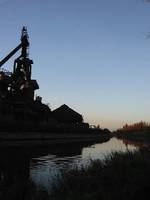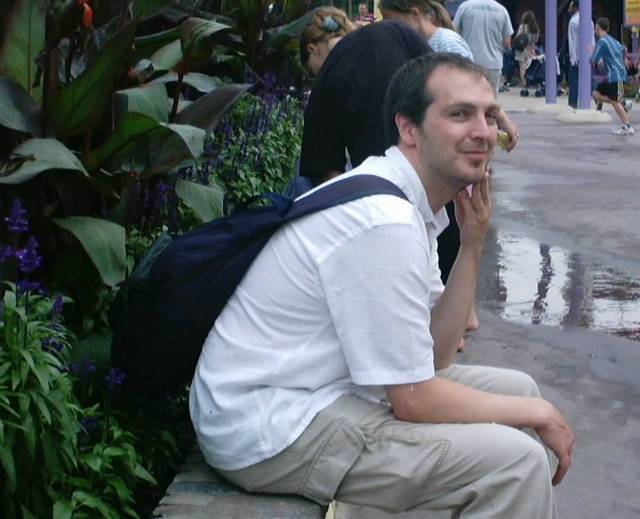It was built during the 1950s and 60s to link the coalfields and heavy industry of the Charleroi region with Brussels and the port of Antwerp. It's not a canal like those in Britain - a puny little stream built for narrow boats - but a 30m wide channel for enourmous barges like those on the Rhine. The canal's equivalent of locks are equally imposing engineering feats worthy of Brunel. The awesome "inclined plane" at Ronquieres pulls a water tank 90m long and 12 m wide, up a slope for 1300 metres - the boats travel in this. The canal was finished at the end of the sixties but by the nineties virtually all of the industry it served had disappeared. I haven't done in-depth research but it seems a fair bet that the huge investment in the canal was never remotely repaid in jobs and workers wages.
Rather it just added to the Belgian national debt which was around 160% of annual GDP when Belgium came to join the Euro (more than twice the supposed limit). Luckily, a truly "European compromise" meant that Belgium (and Italy amongst others) got over that hurdle by showing that they were "trying really hard - honest".
But who can really say if it was worth it anyway? I walked down the canal, past the Forges de Clabecq . This huge 100 year old plant employed 5,000 people at the end of the seventies and closed in 1997. Walking through the middle of it today, in virtual silence, is an eerie experience. But the investment in the canal probably kept it open a lot longer than it otherwise would have been. It may have been ultimately unsuccessful, but the long struggle to keep such industries going was more dignified, and much more human, than the brutal destruction of coalfield communities in Thatcher's Britain.
Forges de Clabecq



No comments:
Post a Comment